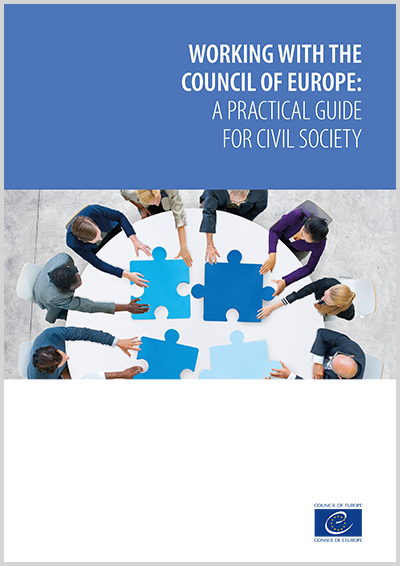European Social Charter

The European Committee of Social Rights supervises how the charter is implemented through a reporting procedure and a collective complaints procedure. National and international NGOs can engage with the committee within these two monitoring procedures. They can also play a part in the follow-up procedures. A brochure available in English and French explains the process in detail.
Under the reporting procedure, states covered by the charter regularly submit a report on its implementation in law and in practice. These reports are examined by the committee, which decides whether the national situations they describe comply. The decisions adopted by the committee, called “conclusions”, are published every year.
The Committee of Ministers follows up conclusions presented by the Governmental committee of the European Social Charter and the European Code of Social Security, which is composed of representatives of states who are party to the charter and of observers representing European employers’ organisations and trade unions. The Committee of Ministers may then address a recommendation to that state asking it to change the situation in law and/or in practice.
The collective complaints procedure was introduced by the additional protocol providing for a system of col- lective complaints in 1995 through a procedure that allows certain organisations including INGOs to bring complaints. Collective complaints can only be brought against states that have accepted the complaints procedure.
A complaint is examined by the European Committee of Social Rights which declares it admissible if the formal requirements have been met. The committee then takes a decision on the merits of the complaint, which it transmits to the parties concerned and to the Committee of Ministers. The decision is made public within four months of this transmission. On the basis of this report, the Committee of Ministers adopts a resolution and may recommend that the state concerned takes specific measures to bring the situation in line with the charter.
There are a number of ways that NGOs can get involved. Under the reporting procedure:
States who are party to the charter are under an obligation to communicate copies of their national reports to trade unions affiliated to the European Trade Union Confederation (ETUC) and to national organisation that are members of Business Europe and of the International Organisation of Employers (OIE).
These organisations and, more generally, trade unions, employers’ organisations, NGOs and others may submit comments and information on state reports to the European Committee of Social Rights. The extent to which these comments are taken into account is within the discretion of that committee.
Comments on national reports must be submitted to the secretariat of the European Social Charter before 30 June of the year during which the European Committee of Social Rights examines the national report concerned. This deadline has been set to allow states time to respond to comments if they so wish.
Under the collective complaints procedure:
Only certain organisations can bring collective complaints to the European Committee of Social Rights. These include representative national trade unions and employers organisations and INGOs which have participative status with the Council of Europe and which, at their request, have been included on a list of international Non-Governmental Organisations (INGOs). National NGOs or INGOs that are not on the list can work together with listed INGOs to lodge collective complaints. Information can be found on the website of the European Social Charter and on the website of the Conference of International Non-Governmental Organisations of the Council of Europe.
Civil society (and other) organisations can provide input with regard to collective complaints brought by others. In this case, those organisations should indicate to the European Committee of Social Rights their interest in submitting observations on a pending collective complaint. To do so, they are invited to contact the secretariat of the European Social Charter.
European Committee for Social Cohesion – CCS
The European Committee for Social Cohesion (CCS) (previously the European Social Cohesion Platform) promotes the Council of Europe’s work on social cohesion, in particular by promoting the European Social Charter and its collective complaints procedure.
 Focus 2022-2025
Focus 2022-2025
Transition to green economy/platform economy and social cohesion; social cohesion enablers; social security and minimum income; poverty eradication including challenges stemming from migration and global warming; approaches to sustainable development
 Civil society involvement
Civil society involvement
- Participants: Conference of INGOs (CINGO); social partners
- Observers
- Consultation with civil society, either through direct participation in meetings, or through dedicated hearings or in writing.
Many civil society organisations are regularly invited and participate in the activities and meetings of the COE- FRA-ENNHRI-EQUINET Collaborative Platform on social and economic rights. Its main objectives are to work with national and international human right organisations to strengthen knowledge of the European Social Charter and other human rights standards relating to social and economic rights; to ensure that human rights standards are taken into account in the design and implementation of national legislation and to promote a wider acceptance of the revised European Social Charter and the collective complaints procedure.



